It has emerged that the majority of steel used in the new patrol vessels being built on the Clyde is Swedish in origin.
The issue was brought to light by Lord Hoyle during a session of the House of Lords.
“However, it is not only on the replacement for the Trident submarine that foreign steel is being used but on the Royal Navy patrol vessels, for which 60% of the steel comes from Sweden.”
The Offshore Patrol Vessels had been ordered to fill a gap in orders after the second carrier and before the Type 26 frigates started construction.
Two vessels, in addition to the previously ordered three, were announced as part of the last Strategic Defence & Security Review.
The first of the five new vessels, HMS Forth, is expected to be handed over to the Royal Navy in 2017.
The Strategic Defence & Security Review states:
“We will buy two further new Offshore Patrol Vessels, increasing the Royal Navy’s ability to defend UK interests at home and abroad.”
The vessels will be used by the Royal Navy to undertake various tasks including border protection roles, including anti-smuggling, anti-piracy, fisheries patrols, and immigration law enforcement.


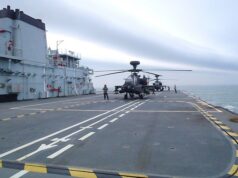

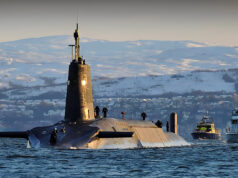
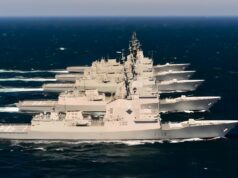

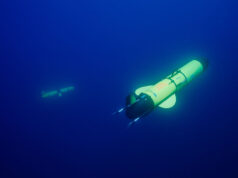
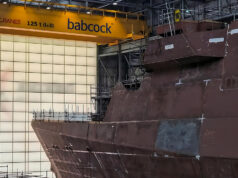
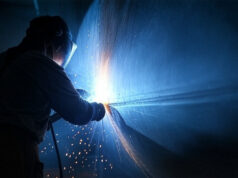

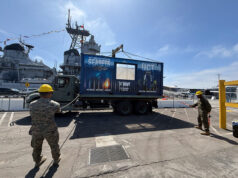

To me this further cements the case for building hulls where they can be built cheaper and then refit with electronics and armaments here in the UK. We’d save enough cash to build a fleet worthy of a carrier group…
Absolutely Dave – I agree wholeheartedly!!
Sorry Dave but because there is complacency and incompetence (as shown by the Parker report) and some numpty in the MoD / BAE cabal fails to see the political stupidity of buying foreign steel when we are trying to rebuild our UK industry that doesn’t mean we should export even more jobs abroad. And Korea may be cheap but you gets what pays for and it isn’t doing a really great job on the Tide Class tankers. Late and not working.
92% of the steel used in the carriers was British. They were built by yards all over the UK and assembled in Rosyth. Some may argue it was the wrong place logistically and had no history of building ships (unlike Belfast) but Gordon Brown was their PM. Say no more but despite the politics two great carriers have been produced and that UK capability still exists and should be exploited.
We need to develop and create more skilled and productive people for the new post-Brexit world. Maybe being in the EU has made people lethargic and accepting of mediocrity. Well Parker has shone the light on that mediocrity. Whether the vested interests in the Establishment listen is another thing of course.
We are and have been doing that since the first tree was cut for the first boats in the Royal Navy. Its not that we need to build our industry for skilled and productive workers, that is already here. Britain could build the best warships in the world, But there has to be a compromise. We can’t go from spending 5% of GDP on defence just a few decades ago to 2ish% and manage to continue onward’s without a significant and dangerous loss of defence capabilities. There are many solutions Chish and of course your suggestion that we exploit our defence industry is there, but the customer base is small and our ships not cheap. Other solutions are to raise taxes (ferociously unpopular), Building our hulls elsewhere more cheaply and collaborations with other defence forces and im sure others, but all will require compromise and ultimately we need to retain our desperate RN anyway we can…
I’d love to know how you’d install all the equipment if the hulls are built elsewhere, do you think you just open it up with a big can opener and drop it in,the kit needs to be installed during build, and another thing, most of the price of a ship is the radar and armaments that are fitted not the hull build, British ships are extremely well made and very complex, it’s not easy by any means to build these ships as lightweight as they are, they are built for speed
If we are willing to build 100 escorts and 50 subs abroad and get as much skilled work-share as possible it may work out. The reality is if we just build current number abroad we have also lost the ability to replace loses if/when things get shooty. Any “savings” are just getting spent (and then some) opening up new Job Centers.
$500m abroad is $500m abroad, $750m at home should actually keep $500m and skills at home ($756m-ish if NSS report is correct) those skills should be considered as part of defence capabilities as should ample weapons stocks.
The whole purpose of making, building and buying in Britain is to put people back into jobs, not only for the manufacturers but also the small businesses that support the workers and community. We have the resources, labour and know how why should we tender it out to a foreign market? The wages earned will at some point be returned back into our system to improve our economy
Your thoughts?
if we want skills, knowledge and wealth shared to all in the UK then there is still a place for steel manufacture and high end shipbuilding in this country. I voted out for many reasons but if the Government cannot spend our money where we reasonably can on equipment for defence at home then the UK is finished. What is left to sell off?
We need our politicians to catch up with the majority in the UK and start protecting our long term national interest and not bloated PLC’s like BAE.
The recent report just sheds light on something that is obvious to anyone who has been involved in business. If you single source anything the price will go up.
Good design (avoid gold plating)competition, longer production runs (share R&D costs with close allies with similar needs) and regularly orders for ships allowing businesses to plan would help and bring back our once proud RN. A largely foreign built RN would be the final insult.
I was wondering whether there could be some feasibility to transfer the river class, either batch, to the border agency. If you look at their primary role, it seems to me that it is mainly policing roles within UK borders. It might free up some capital to invest in something more useful for foreign operations.
Steel Quality! Swedish Steel is either Chromium-Steel or Titanium-Steel Alloys. Near Medical Grade and Non-Magnetic with Saltwater Corrosion Resistant. Germany in WW2 bought their Iron Ore from Sweden because of High Chromium rating…
Do we send our sailors to sea in ships made of the best steel, at the best price, or in ships made of political convenience?